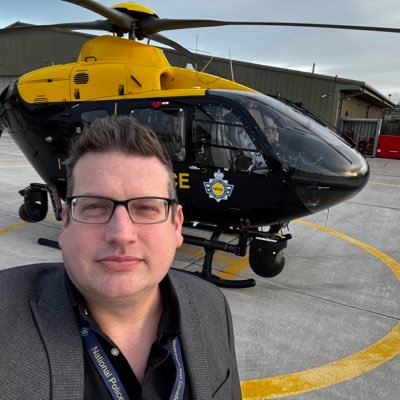The National Police Air Service (NPAS), in partnership with the National Air Traffic Control Service (NATS) and the Civil Aviation Authority (CAA), is embarking on the UK’s most ambitious trial of uncrewed aircraft in support of policing.
The trials will assess the feasibility of using ‘beyond the visual line of sight’ (BVLOS) uncrewed aircraft systems, known as UAS, to work alongside traditional police helicopters and aeroplanes in delivering air support to police forces across England and Wales.
As part of the pioneering project, NPAS has been awarded a position in the CAA’s BVLOS Integration Sandbox.
The CAA is the UK’s aviation regulator, ensuring the industry meets the highest safety standards. Sandboxes are controlled environments where organisations can test and develop new technology against the regulatory framework, helping applicants maximise the readiness of their innovation, and the CAA to evolve regulations.
For NPAS to be awarded a position in the Sandbox is a significant step forward in its Futures and Innovation Programme.
Sophie O’Sullivan, Director of Future of Flight at the UK Civil Aviation Authority, said:
“These innovative trials mark a significant step forward in integrating drones safely into UK airspace.
“Our goal is to make drone operations beyond visual line of sight a safe and everyday reality, contributing to the modernisation of UK airspace and the incorporation of new technology into our skies.”
As the UK’s leading provider of air traffic control services, NATS is also supporting NPAS with the approval of trial airspace for the uncrewed aircraft, plus airspace integration and safety oversight.
Along with the skills and experience of the police aviation team at NPAS, the partnership brings together the very best expertise in aviation safety and air support to explore the potentially exciting opportunities that uncrewed aircraft could offer policing in the future.
Richard Ellis, NATS New Airspace Users Director, said:
“We are absolutely delighted to be working with NPAS on what is a pioneering project, both for the future of policing and the wider adoption of drones in the UK. NPAS is combining leading technology with an innovative approach and focus on safety, something that aligns perfectly with NATS’ ambition to enable an integrated airspace for all users. We are hugely excited to be working together to demonstrate this pivotal user case and provide valuable data to the CAA.”
The trials are funded by the Home Office as part of a wider investment into drone technology in policing.
David Walters, Head of Futures and Innovation at NPAS, said:
“As technology advances, so too do the opportunities for police air support. The trial will be operating uncrewed aircraft capable of staying airborne for more than six hours and fitted with mission equipment comparable to those on the existing NPAS fleet. If trials are successful, this will enable delivery of a highly capable blended fleet of police helicopters, aeroplanes and uncrewed aircraft in future years.”
If adopted, the UAS will be flown by qualified NPAS pilots, supported by highly experienced tactical flight officers.
“Nothing replaces the value that the skills and experience of NPAS pilots and tactical flight officers bring to policing,” added David.
“These trials are about enhancing the aviation service delivered by our traditional aircraft and crews and creating a blended fleet which offers even greater capabilities.
“NPAS is highly regarded within the regulatory environment for its high standards of safety and compliance, making it perfectly placed to lead these trials.”
If the concept is proven, the vision is for our highly skilled crew members to pilot the uncrewed aircraft from selected NPAS bases, using the experience and expertise of our tactical flight officers to maximise their effectiveness in delivering successful police operations.
The trials, which are expected to begin in Spring 2025, will be run from an existing NPAS base in the South West region, selected for its unique position to operate over water for aircraft shakedown testing, and then progress inshore once levels of safety assurance have been met.
NPAS is currently working with BlueLight Commercial to procure a supplier for the UAS which is to be trialled.
Discover more from sUAS News
Subscribe to get the latest posts sent to your email.

